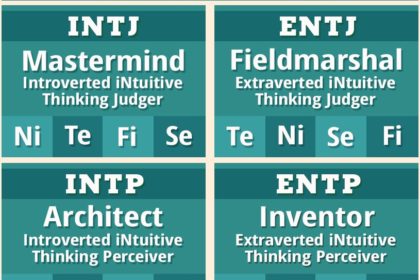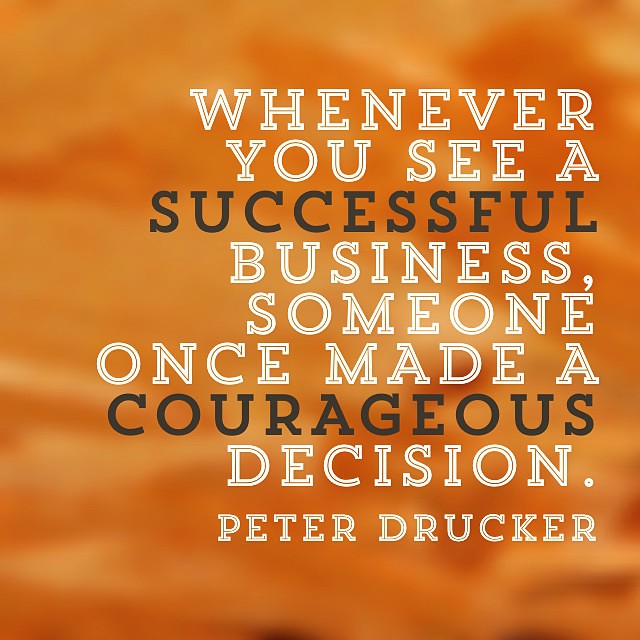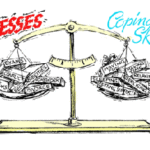
Article Highlights
“How do I become a better CEO as an introvert?”
So I’ve been asked. And it’s a surprisingly common topic hinting that many are questioning if their introverted nature is handicapping them as a founder, leader, executive, or that CEO.
At first blush, a thought to appreciate is Confirmation Bias OR Perception Bias.
Confirmation Bias is a VERY important tendency for entrepreneurs to appreciate: The tendency to interpret new evidence as confirmation of one’s existing beliefs or theories.
‘Introverts aren’t great leaders’ Look at my own experience struggling… look at all these articles about introverts struggling… it must be true.
Perception Bias is a similar tendency. Rather than seeking and favoring evidence that affirms our beliefs, perception bias is reaching those beliefs only by way of limited world view. Rather than seeing evidence that confirms it, we conclude it because of what we already know.
And it’s those two tendencies that I want to share so as to challenge your beliefs, because it’s entirely likely that our perception is biased by extroverted entrepreneurs being more visible simply by their nature of being extroverted.
Still, How MIGHT one Become a Better CEO as an Introvert?
I’ve read far too many articles on this topic, which suggest that the answer lies in becoming more extroverted. “Learn public speaking!” Come to mind as frequent advice.
There is NOTHING about being a social butterfly that determines that one is a better CEO or not.
Some of the top introverted CEOs include Marissa Mayer, Mark Zuckerberg, Warren Buffett, and Bill Gates.
There is no shortage of successful companies led by people you barely see, rarely hear, and who just do their job with their team, and go home to their loved ones.
I won’t begin to hold myself among that class of esteemed CEOs but I think MediaTech Ventures is doing a pretty good job. I share that because while my peers might perceive me as extroverted, I’m in fact very NOT.
I’ve learned to enjoy writing a lot, being visible online. I’m active on social media, behind a screen. I prefer creating to meeting. I abhor Sales.
I do love speaking in public but it’s a learned skill, I have a passion for teaching, debate, and sharing.
I really don’t enjoy being at networking events where I don’t already know most people.
Great leadership, I think, is about inspiration.
- Do you manage or coach?
- Do you say I and My or Ours and We?
- Do you take credit or give it?
I think the challenge most businesses struggle with is that we’ve rather lost sight of the responsibilities of roles. The job of the CMO has been thrown in chaos thanks to the internet, and now we have Product leadership, CROs, People Officers, and more, as companies struggle with Organizational Operations.
Begging the question first, what is the job of the CEO? My opinion is their job is really only bringing whatever everyone else needs to do their job best.
Raising money… media attention… attracting talent… inspiring… partners
The CEO reports to a Board and everyone else typically reports to a President or COO, because the CEO, while capable of replacing the others, is really just there to make sure those others can do what they do best.
And it’s in this confusion of who does what, who should do what, that teams don’t seem to work right. That’s CEOs aspire to be better… often, better means getting out of the way because it’s others’ job; do yours of making sure they have what they need.
Many schools of thought reinforce this, while being obfuscated by the well known founder CEOs or notable company CEOs.
Assuredly Elon Musk does everything, doesn’t he?! Mark Zuckerberg alone started and runs Facebook, doesn’t he??
Ha. Not remotely.

Given my study of Peter Drucker, I’m an advocate of one organizational structure in particular. That the CMO and CTO/COO are the most important people in a company. The CEO makes sure they have what they need, to run, lead, manage, operate, and decide just about everything. Perhaps a COO is there to manage day to day and run things smoothly.
But, everything and everyone else is a COST of doing business. *They* determine the business. And the CEO makes sure they have what the need to cover those costs (real and intangible)
I tend to believe great CEOs are in fact introverts. At least in my study, that seems to prove true more often than not.
The extroverts are more public and often more known, giving us a confirmation bias that great CEOs are extroverted.
And I’m not saying their not too, there is nothing about extroversion that inherently makes one better nor worse either. I just mean to note that we might not appreciate how important and pivotal those introverted leaders are because they’re, well, introverted.
What might make Introverted CEOs better?
Well for one, they probably have that leadership style evident in Druckers’ observations of great organizations…. Rather than being involved in everything, they probably prefer hiring great people, and getting out of the way.
And they’re out of the way because they seek balance; because social settings are draining.
That balance is what makes great companies and employers. So, for two, they’re probably better CEOs because they establish an expectation and culture of Work Life Balance.
I can relate, in our era of smartphones and always-available, I’ve hacked my phone so it doesn’t give me alerts, doesn’t take calls, and weekends, my team knows, I’m not working. Family first.
It’s my time, as an introvert. And that my-time is because people need time. My family, so we can talk, so we can read, so we can recharge.
The People Time, is where I think Introverted CEOs also excel. For three, they prefer the one on one and the personal meetings. They listen.
In Organizations, that tends to mean fewer wasteful meetings with groups (introverts don’t like them), and more personal encounters and conversations getting to know individuals.
That’s leadership.
Be yourself because characteristics of Introverts tend to correlate with the qualities of great CEOs.




Check out a book called The Introvert’s Edge (How the Quiet and Shy Can Outlast Anyone) by Austin based Matthew Pollard.
Superb body of thought. One important thing — nobody is 100% introvert or extrovert. We are a mix and the mix changes with time and seasonally.
This translates into “leadership style” and “genuine leadership voice.”
Both of these delivery techniques are influenced by to whom one is communicating.
You may adapt a number of different leadership styles and it will evolve over time, but you have a single genuine leadership voice. It has to be authentic.
In the end, the leader is the one defining the vision — the end of the journey — while the manager is the resource allocater who ensures the journey is safe and milestones are met.
A really good CEO eventually delegates his entire job such that he is watching the instruments like an instrument pilot. That is what you are referring to when you note that introversion may be the ultimate steady state of a successful CEO.
The world is alive with military leaders who were introverts who had enormous impacts on the outcome of battles and campaigns — Bradley, the Army’s foremost amphibious planner, Troy Middleton, the corps commander who was the first to figure out that the linchpin to the Battle of the Bulge was Bastogne and that it had to be held. Middleton was brilliant in selecting the 101st ABN Div to hold it because he realized paratroopers were comfortable being surrounded. A brilliant insight.
My favorite general of all time is Gen Oliver Prince Smith, the USMC MG commander of the 1st Mar Div who calmly extricated his division when outnumbered 10:1 at the Chosin Reservoir. His success was calm, thoughtful, and pre-planned. He built the infrastructure headed north that became essential to his escape headed south.
The retreat from the Chosin and getting the 25,000 men of the 1st Mar Div out with their wounded and equipment was the absolute best division level battle in the history of warfare. He was a notorious introvert.
In the end, CEOs have to be flexible and adopt the style and voice that will work for that team.
Worth reading — leadership is not necessarily about visibility and assertiveness; vision and empowerment of others is far more important than many realize, and vital for the long-term sustainability of any enterprise.
Matthew’s book is a great read, and made me realize I’m a little of both, introverted and extroverted…
Thanks for reminding Paul O’Brien of my work Richard Hurley and Michael E. Schmidlen. Looks like an interesting read, I’ll check it out.
INTJ’s starve. Change my mind.
Many of the most successful engineers are INTJs
Their judging can be their downfall in seeming overconfident or dismissive but Intuitive Thinking makes them among the best problem solvers in the world.
Aerospace Engineers, Architects, Mechanical Engineers.
Dentists, Lawyers.
With the rough personality, they’re seen as jerks (Zuckerberg, Great Defense Attorneys, the evil Dentist stereotype of Little Shop of Horrors) but the more personable include Schwarzenegger, Steven Hawking, Isaac Newton
The jerks thrive with teams and the nicer change the world